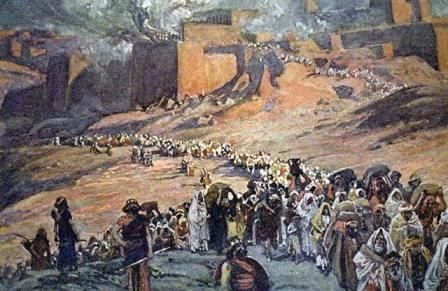
Today’s hymn from Sing Praise is Martin Leckebusch’s “Extol the God of justice”, a traditional three-verse hymn, with a suggested tune by Vaughan Williams, but John played it to the tune of “Stand up, stand up for Jesus”. The theme is similar to that of yesterday’s hymn, but this one is specifically based on Psalm 9.
The first verse includes the line “remember all his wonders”, a theme that occurs throughout the Hebrew scriptures. Any temptation to doubt God’s ability to intervene in human affairs is countered with remembrance of past events, supremely the Exodus from Egypt and later the captivity in Babylon and subsequent return from exile. Even those events, involving whole nations or races, are seen as God rewarding one or punishing another according to the level of obedience or disobedience to him at a national level. That’s hard to understand in a society that is so focussed on the individual. As individuals we may or may not try to “labour for what is true and right” but it’s important to lift our eyes and see what’s happening on a larger scale in the world.
The second verse gives more specific examples of God’s justice: one who “hears the cry of victims and senses their despair”. The third reminds us that “however dark the day, the hope that calls for mercy will not be turned away”. God is the unchanging one who, while allowing human freedom and independence up to a point, is willing to act in world events when nations allow that freedom to take them too far from his ways, whether to save from oppression or to punish the oppressor. Noah, Abraham and Lot, Jeremiah and many others in Israel’s history experienced that, and for us Christians, the death and resurrection of Jesus were the ultimate intervention from which everyone can benefit – if we are willing.
It is, then, appropriate to pray on a macro scale for justice in the world, as well as at the micro level of praying for individuals. Returning to the second verse, “in faithfulness he honours the faith that sparks our prayer”.